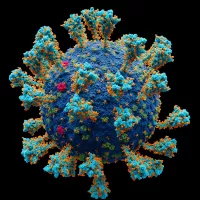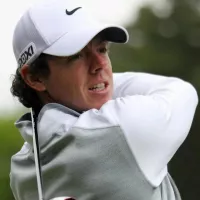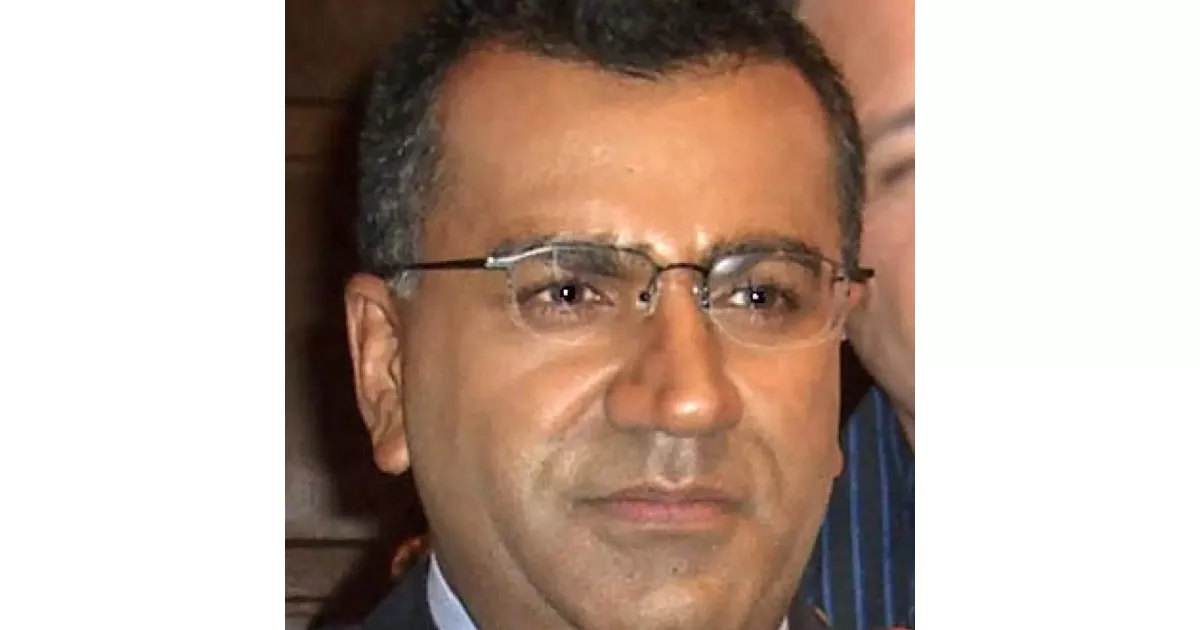Martin Bashir is a former British journalist known for his work on British and American television, particularly for the BBC's Panorama programme. He gained notoriety for his controversial 1995 interview with Diana, Princess of Wales, which, while acclaimed at the time, was later found to have been obtained through deceit and forgery. This revelation tarnished Bashir's reputation and overshadowed his journalistic career.
January 1963: Martin Bashir's Birth
Martin Henry Bashir was born in January 1963. He would later become a prominent British journalist, gaining fame through his work on significant television programmes.
1982: University Education
Martin Bashir began his higher education in English and History at King Alfred's College of Higher Education, Winchester, in 1982.
1985: Completion of Undergraduate Studies
In 1985, Martin Bashir completed his undergraduate studies in English and History at King Alfred's College of Higher Education, Winchester.
1986: Joining the BBC
Martin Bashir began working for the BBC in 1986, marking the start of his career in television journalism. He contributed to various programmes during this period.
1991: Death of Bashir's Brother
In 1991, Martin Bashir's brother, who suffered from muscular dystrophy, passed away. Bashir has attributed many of his life decisions to his late brother.
1993: Violation of Producers' Guidelines
In 1993, Martin Bashir's actions during his career at the BBC were found to be in serious breach of the Producers' Guidelines on straight dealing, as concluded by an independent inquiry in 2020.
November 1995: Interview with Diana, Princess of Wales
In November 1995, Martin Bashir interviewed Diana, Princess of Wales about her failed marriage to the Prince of Wales for the BBC's Panorama programme. The interview was viewed by nearly 23 million viewers in the UK and catapulted Bashir to global fame.
1995: Interview with Diana, Princess of Wales
In 1995, Martin Bashir conducted a high-profile interview with Diana, Princess of Wales, for the BBC's Panorama programme.
1996: Dieter Wiesner Becomes Michael Jackson's Manager
Dieter Wiesner began working as Michael Jackson's manager in 1996, a role he held for seven years.
1996: ITV Documentary on Bashir's Manipulations
In 1996, ITV aired a documentary examining Martin Bashir's manipulations and the BBC's response, following the controversial 1995 interview with Diana, Princess of Wales.
1996: Princess Diana Confides in Jennie Bond About Interview
In late 1996, Princess Diana confided in former BBC royal correspondent Jennie Bond during a private meeting, revealing that she did not regret participating in the controversial interview with Martin Bashir. Diana expressed her concerns about a potential gagging order related to her impending divorce settlement and believed the interview was her only chance to publicly address her perspective.
1996: Bashir Receives Multiple Awards for Diana Interview
Martin Bashir and producer Mike Robinson were awarded the BAFTA Award for Best Talk Show at the 1996 British Academy Television Awards for their work on the Panorama interview with Princess Diana. Bashir also received several other accolades for the interview, including awards from the Television and Radio Industries Club, the Broadcasting Press Guild, and the Royal Television Society.
1999: Joining ITV
In 1999, Martin Bashir joined ITV, working on special documentary programmes and features for Tonight with Trevor McDonald.
1999: Departure from BBC
In 1999, Martin Bashir left the BBC, where he had worked on various programmes including Panorama.
September 2001: Bashir Investigates "Who Wants To Be a Millionaire?" Cheating Scandal
In September 2001, Martin Bashir, then working for ITV, was involved in investigating a cheating scandal during the recording of an episode of the game show "Who Wants To Be a Millionaire?" The episode, featuring contestant Charles Ingram, was pulled from broadcast due to suspicions of cheating.
2001: Bashir Makes Cameo Appearance in "Mike Bassett: England Manager"
Martin Bashir appeared as himself in the 2001 satirical comedy film, "Mike Bassett: England Manager," which revolves around the fictional story of a struggling football manager leading the England national team.
2003: Jackson Complains to Regulatory Bodies and Releases Rebuttal Interview
Following the broadcast of "Living with Michael Jackson," which garnered significant viewership in both the UK and the US, Michael Jackson filed complaints with the Independent Television Commission and the Broadcasting Standards Commission, accusing Martin Bashir of sensationalized journalism. Jackson, alongside his personal cameraman, released a separate interview that contradicted Bashir's portrayal and presented a more favorable view of Jackson, including footage of Bashir complimenting the "spiritual" ambiance of Neverland Ranch.
2003: Bashir's Documentary on "Who Wants To Be a Millionaire?" Cheating Scandal Airs
In 2003, Martin Bashir presented a documentary for ITV titled "Major Fraud," which detailed the story of British Army major Charles Ingram's attempt to cheat on "Who Wants To Be a Millionaire?" in 2001. The documentary, which aired after the original game show episode was pulled due to suspicions of cheating, garnered higher viewership than Bashir's Michael Jackson interview.
2003: Documentary on Michael Jackson
In 2003, Martin Bashir presented an ITV documentary about Michael Jackson, which gained significant attention.
2003: Bashir's "Living with Michael Jackson" Documentary Sparks Controversy
In 2003, while employed by ITV, Bashir conducted a series of interviews with Michael Jackson for a documentary titled "Living with Michael Jackson," which aired as part of the "Tonight with Trevor McDonald" series. Bashir shadowed Jackson for eight months after securing the interview through Jackson's friend, Uri Geller. However, allegations surfaced from Bashir's colleagues claiming he obtained the interview by making promises to Jackson, including a planned trip to Africa with Kofi Annan, then UN Secretary-General, to visit children with AIDS. Bashir refused to address these allegations under oath in a California court.
December 2004: Bashir Interviews Victor Conte on Doping in Sports
In December 2004, Martin Bashir interviewed Victor Conte, the controversial founder of the Bay Area Laboratory Co-operative (BALCO), for ABC's investigative journalism program, "20/20." During the interview, Conte admitted to orchestrating doping programs that contributed to athletes breaking Olympic records and made allegations about widespread corruption and drug use within the Olympic Games.
2004: Move to New York
In 2004, Martin Bashir moved to New York to work as an anchor for ABC's Nightline, marking the beginning of his career in American television.
2005: Co-anchoring Nightline
In 2005, Martin Bashir, along with Cynthia McFadden and Terry Moran, took over Nightline from Ted Koppel.
2008: Suspension from ABC News
In 2008, Martin Bashir was suspended from ABC News after making crude and sexist remarks at the Asian American Journalists Association convention. He later issued an apology.
2008: Bashir Diagnosed with Brain Tumor
Martin Bashir was diagnosed with a brain tumor in 2008. The tumor affected his pituitary gland.
2009: Jackson's Manager Discusses Reaction to Bashir Documentary After Singer's Death
Following Michael Jackson's death in 2009, Dieter Wiesner, who served as Jackson's manager from 1996 to 2003, spoke about Jackson's feelings towards the Bashir documentary. This followed earlier complaints Jackson lodged with the Independent Television Commission and the Broadcasting Standards Commission in 2003, accusing Bashir of unethical journalistic practices. Jackson and his personal cameraman had released a rebuttal interview showcasing Bashir's positive remarks about Jackson during filming.
August 2010: Joining MSNBC
In August 2010, Martin Bashir left ABC for MSNBC, where he served as a political commentator and occasional host for Lawrence O'Donnell, and hosted his own programme, Martin Bashir.
October 2010: Bashir Releases Reggae Album "Bass Lion"
On 26 October 2010, Martin Bashir, who plays bass guitar, released a reggae album titled "Bass Lion."
January 2013: Criticism over Edited Clip
In January 2013, Martin Bashir faced criticism for misleading viewers by airing an edited clip of Neil Heslin, whose son was killed in the Sandy Hook Elementary School shooting. MSNBC later aired an unedited video of the testimony.
November 2013: Criticism of Sarah Palin
On 15 November 2013, Martin Bashir criticised Sarah Palin for her comments comparing the U.S. federal debt to slavery. He later apologised and resigned from MSNBC in December 2013 after being suspended by the network.
December 2013: Resignation from MSNBC
In December 2013, Martin Bashir resigned from MSNBC after making 'ill-judged' comments about former Alaska governor and vice-presidential candidate Sarah Palin. His remarks led to significant backlash and his departure from the network.
2016: Return to BBC
In 2016, Martin Bashir returned to the BBC as a religious affairs correspondent, resuming his work with the corporation.
2019: The X Factor: Celebrity Appearance
In 2019, Martin Bashir appeared on The X Factor: Celebrity, motivated by the memory and influence of his late brother.
October 2020: Bashir Reportedly "Seriously Unwell" with COVID-19
In October 2020, reports emerged stating that Martin Bashir was "seriously unwell" after contracting the coronavirus. This followed earlier health issues, including a brain tumor diagnosis affecting his pituitary gland in 2008.
November 2020: BBC Launches Independent Inquiry into Bashir Interview
In November 2020, following continued scrutiny, the BBC announced an independent investigation into the methods employed by Martin Bashir to secure the Princess Diana interview. The inquiry was headed by former Supreme Court judge John Dyson.
November 2020: BBC Finds Cleared Note and Jennie Bond Reveals Diana's Lack of Regret Over Interview
In November 2020, it was reported that the BBC had discovered a note from Princess Diana that absolved Martin Bashir of pressuring her into the famous interview. Additionally, former BBC royal correspondent Jennie Bond revealed that Diana, in a private conversation in late 1996, expressed no regrets about the interview, stating her fear of a gagging order during her divorce proceedings and viewing the interview as her sole opportunity to speak freely.
2020: BBC Apology to Earl Spencer
In 2020, the BBC's director general Tim Davie apologised to Earl Spencer for Martin Bashir's use of faked bank statements to secure a 1995 Panorama interview with Diana, Princess of Wales.
March 2021: Metropolitan Police Decline Criminal Investigation and Bashir Denies Smear Campaign Allegations
In March 2021, the Metropolitan Police, after thorough assessment and consultation with legal experts, decided against pursuing a criminal investigation into the allegations surrounding the Diana interview. During the BBC inquiry, Bashir refuted claims of initiating a smear campaign against the royal family to persuade Diana to participate. He suggested that Diana herself might have been the source of those rumors, which included allegations about Prince Edward's health, the Queen's alleged abdication plans, and Prince Charles's alleged affair. Bashir maintained that introducing such claims would have jeopardized his credibility and chances of interviewing Diana. He alluded to Diana's consultations with mystics and clairvoyants as potential origins of the misinformation.
May 2021: Resignation from the BBC
In May 2021, Martin Bashir resigned from the BBC citing health reasons, amidst controversies surrounding his past journalistic practices.
May 2021: BBC Returns BAFTA Award Following Dyson Inquiry
In May 2021, subsequent to the Dyson Inquiry's conclusion that Martin Bashir acted deceitfully in obtaining the interview with Princess Diana, the BBC made the decision to return the BAFTA Award that had been presented to Bashir and producer Mike Robinson in 1996.
May 2021: Dyson Inquiry Finds Bashir Guilty of Deceit and Bashir Resigns
The Dyson Inquiry concluded in May 2021, finding Martin Bashir culpable of employing deceptive tactics and violating BBC's editorial guidelines to obtain the Diana interview. The report characterized Bashir as "unreliable," "devious," and "dishonest." Following the inquiry, which the BBC stated Bashir fully cooperated with, a scheduled Panorama episode addressing the controversy was postponed due to Bashir's resignation.
September 2021: Metropolitan Police Conclude No Grounds for Criminal Investigation
In September 2021, following a review of the Dyson report findings to ascertain any substantial new evidence, the Metropolitan Police publicly declared that they would not be initiating a criminal investigation into the circumstances surrounding the Princess Diana interview.
2021: Bashir Undergoes Quadruple Heart Bypass and Additional Surgeries
Following reports of serious illness due to COVID-19 in late 2020, Martin Bashir reportedly underwent a quadruple heart bypass surgery. He was said to have undergone further surgical procedures in the spring of 2021.
July 2022: BBC Issues Apology and Compensation for False Affair Claims
In July 2022, the BBC issued a formal apology to the former royal nanny, Tiggy Legge-Bourke, at the High Court and agreed to an undisclosed amount of damages, believed to be around £200,000, for the baseless accusations of an affair with Prince Charles that were made during the lead-up to Martin Bashir's interview with Princess Diana.
Mentioned in this timeline

Michael Joseph Jackson the King of Pop was a highly...
California is a U S state on the Pacific Coast...

The lion Panthera leo is a large cat species native...

Coronaviruses are a family of RNA viruses affecting mammals and...

Sarah Palin is an American politician best known for serving...
ABC News is the news division of the American television...
Trending

8 minutes ago Devin Booker embraces Mexican roots, shines with Dillon Brooks, All-Star awaits.

8 minutes ago Rory McIlroy at Pebble Beach: Career Questions, Mistakes, and Experiment Termination

8 minutes ago Bobby Portis shines providing bench support and sends powerful message on birthday.

8 minutes ago Norman Powell's All-Star breakthrough with Heat and desire to re-sign.

9 minutes ago Damian Lillard Headlines 2026 NBA 3-Point Contest at All-Star Weekend.

9 minutes ago Jake Guentzel: Key Player for Team USA at the 2026 Olympics.
Popular

Kid Rock born Robert James Ritchie is an American musician...

Pam Bondi is an American attorney lobbyist and politician currently...
The Winter Olympic Games a major international multi-sport event held...
Randall Adam Fine is an American politician a Republican who...

Barack Obama the th U S President - was the...

XXXTentacion born Jahseh Dwayne Ricardo Onfroy was a controversial yet...
